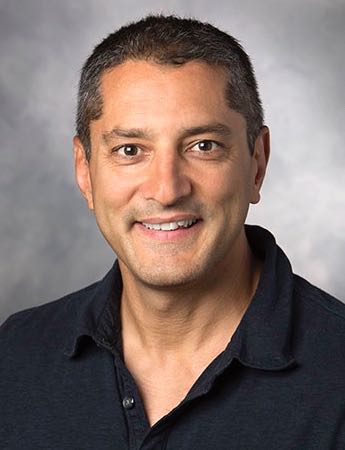Juan Santiago,
Charles Lee Powell Foundation Professor,
Stanford University

Juan G. Santiago received his MS and PhD in Mechanical Engineering from the University of Illinois at Urbana-Champaign in 1995. He holds the Charles Lee Powell Foundation professorship at Stanford and serves as Vice Chair of the Mechanical Engineering Department. His research includes the development of microsystems for on-chip biochemical analysis, microfluidic cell assay systems, two-phase flow devices, and capacitive deionization technologies. Applications of this work include molecular diagnostics, basic studies of cell biology, electronics cooling, and the production of drinking water. He is a Fellow of the American Physical Society, a Fellow of the American Society of Mechanical Engineering, and a Fellow of the American Institute for Medical and Biological Engineering. In 2022, he was elected to the American Academy of Arts and Sciences and to the National Academic of Inventors. He serves as the Editor-in-Chief of the journal Flow. His work is cited about 1500 times per year (Google Scholar h index of 86). He has authored and co-authored over 220 journal papers and 250 conference papers, and he is a named inventor in 58 issued patents (26 of which are currently licensed).
|






